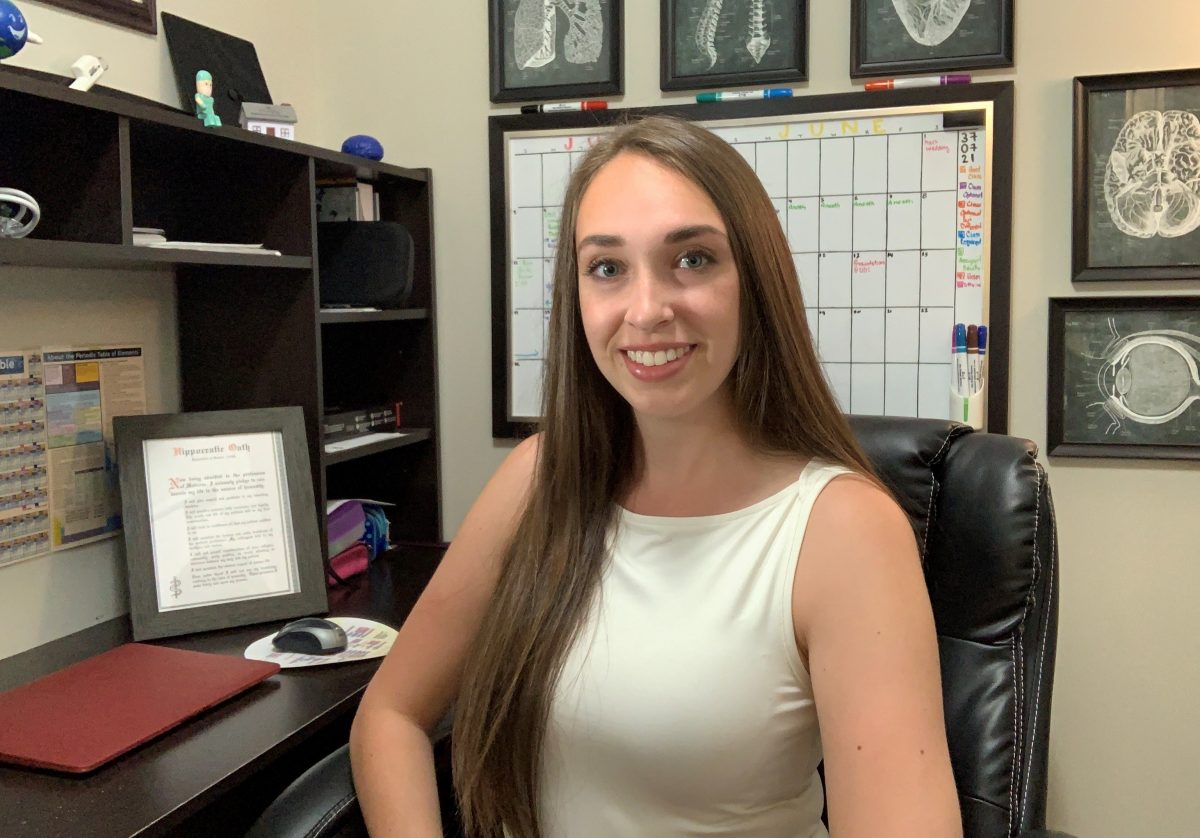
Brittany Plant enrolled in the B.Sc. (Med.) program because she wanted to gain experience as a researcher. She’s now considering becoming a clinician-scientist.
B.Sc. (Med.) students pivot research amid pandemic
Medical students in the bachelor of science in medicine (B.Sc. (Med.) program showed great resilience this summer in the face of the COVID-19 pandemic. Many of the learners had to modify their research or take on a whole new project because of reduced capacity in laboratories and temporary lab closures.
The pandemic forced Hailey Hildebrand to change her research project halfway through the program, but it turned out for the best. It gave Hildebrand, who is entering her third year of the MD program in the Max Rady College of Medicine, the opportunity to explore a different type of research rather than focus on just one area.
The B.Sc. (Med.) program allows medical students the chance to immerse themselves in the life of a researcher for two summers. This experience gives learners the opportunity to develop research skills and can help lead them down the path to becoming clinician-scientists.

Hailey Hildebrand
Hildebrand spent her first summer in the program working on a data analysis study that looked at eczema in children and how it’s associated with calcium intake. Because she couldn’t work in the lab at the beginning of this summer due to COVID-19, she worked with her supervising professor Dr. Jennifer Protudjer to go ahead with a new project.
Hildebrand adapted and shifted her focus towards conducting a scoping review of non-priority food allergens like lentils and chickpeas. This allowed her to conduct the research from home.
“At first it was a little bit disappointing because it meant I wasn’t going to go into the lab and see all the familiar faces every day and I wasn’t able to do the data analysis I wanted to do, but it’s been a really good opportunity to explore a different type of research,” Hildebrand said. “It provided me with an opportunity to grow as a researcher.”
It is this growth that the B.Sc. (Med.) program is designed to provide future physicians. Helping emerging researchers grow is one reason Protudjer takes part in the program.
“As a professor, I take pride in seeing the students mature and develop in terms of their research skills, asking critical questions and developing their writing skills over the two summers that they’re with me,” she said. “It’s very satisfying.”
Students are immersed in research from the end of May until the end of August, after their first and second year of the four-year MD program. For students who only want to spend one summer conducting research they can enroll in the Med Summer Research Program.
This year, 76 (35 first year and 41 second-year) students are enrolled in the B.Sc. (Med.) program, and 43 (20 first year and 23 second-year) students are taking part in the Med Summer Research Program. Learners are provided with a $7,500 stipend per summer.
Dr. John Embil, professor, departments of internal medicine and medical microbiology/infectious diseases, Max Rady College of Medicine, and the director of the B.Sc. (Med.) and Med Summer Research Program, said the supervising investigators worked to modify or change the projects because of the pandemic so that there would be less on-site lab work for the students.
“In a program that is designed to help students learn basic techniques in research, it’s critical that the projects went on the best they could even if it’s not the project that was originally designed,” Embil said.
But not all projects were impacted by COVID-19. For Brittany Plant, who is heading into her third year of medical training, her research continued as planned because her study focused on patient data.
Plant’s research looked at the incidence of spondylodiscitis, an infection of the spinal vertebrae and spinal discs, in hemodialysis patients. She was investigating ways to predict when the infection occurs and ways to prevent the outcomes.
Plant enrolled in the B.Sc. (Med.) program to gain research experience and said that she is now considering becoming a clinician-scientist after her undergraduate medical training.
“I think that having an understanding of how research is conducted and what it takes to create a paper is helpful for when I’ll be reading them in the future to keep up with my field,” she said. “If I’m interested in conducting research myself, or helping people with their research projects, I think it will be an asset to have had some research experience.”
After analyzing the data, students write a paper that they can submit for publication in a journal. The students present their research to a panel and have the chance to show off their work at the Undergraduate Medical Student Research Symposium. Students have presented their findings at symposia across Canada and around the world.
“It’s been a great experience and I’m very happy and grateful for it,” Plant said. “I look forward to where research takes me.”






